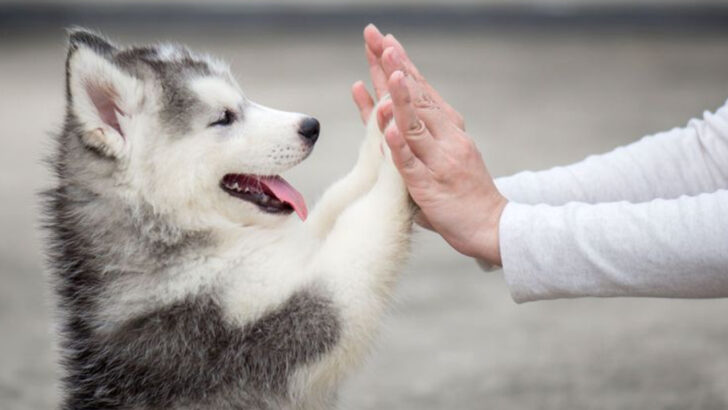Your dog might be reading you better than your best friend. While some pups just want a treat or a nap, others are busy picking up on your every mood shift, micro-expression, and sigh from across the room. These aren’t just clever dogs—they’re emotionally tuned in, and science is starting to catch up. We’re talking about canines who know when to give space, when to lean in, and when to bring their favorite toy just to cheer you up. It’s not magic—it’s emotional intelligence. And some breeds (and individual dogs) have it in jaw-dropping amounts. Here are 18 signs your dog might be way more emotionally aware than you realized—and why even experts are fascinated by how deep their empathy runs.
Understanding Human Emotions

Dogs are remarkably adept at understanding human emotions. With their keen sense of observation, they can read facial expressions and body language to gauge a person’s emotional state. This ability allows them to respond with comfort or excitement depending on the situation.
Their emotional intelligence is so refined that they can distinguish between a happy smile and a sad frown, often offering a comforting nuzzle or a joyful wag of the tail accordingly. In households, this trait makes them invaluable companions, providing solace and boosting the mood of their human friends.
Empathy in Action

With a heart as big as its paws, the Labrador Retriever is every child’s gentle guardian. This breed, along with many others, shows empathy by sensing distress and providing comfort to humans and other animals alike.
Their empathetic nature often leads them to extend a paw or rest their head on someone in need, offering silent support. Such empathetic actions are not just instinctual but are deeply rooted in their understanding of relationships and emotions, making them irreplaceable in therapeutic settings.
Social Awareness
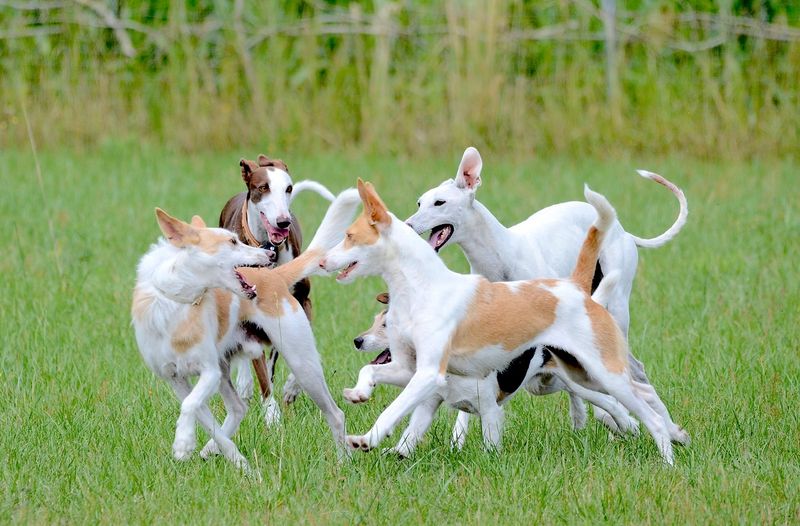
Dogs possess an extraordinary sense of social awareness, allowing them to interpret the dynamics of their surroundings with precision. When interacting with other dogs, they can read social cues and adjust their behavior accordingly, whether it’s joining in play or backing off to avoid conflict.
This social intelligence enables them to navigate complex social structures, making them adept at forming bonds and establishing hierarchies within packs. Their ability to engage with both humans and fellow canines highlights their intrinsic understanding of social norms.
Problem Solving Skills

In moments of challenge, dogs showcase their problem-solving skills with impressive ingenuity. Whether it’s finding a way to reach a treat or figuring out how to open a door, their persistence is commendable.
This cognitive ability not only shows their intelligence but also their emotional resilience in adapting to new situations. By observing and learning from their environment, dogs can employ various strategies to overcome obstacles, reflecting a level of intelligence that often leaves humans in awe.
Sense of Humor

Ever noticed a dog performing antics just to make you chuckle? Dogs display a delightful sense of humor, often engaging in playful behavior that brings joy to those around them.
Their mischievous acts, like stealing socks or playfully barking at their reflection, highlight a playful intelligence that understands the concept of fun. Such behaviors aren’t just for their amusement; they often aim to brighten the mood of their human companions, showcasing an emotional depth that includes shared joy and laughter.
Intuitive Bonding
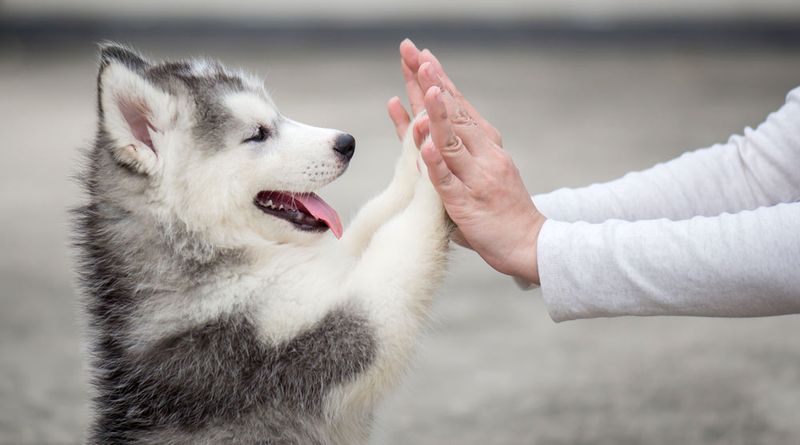
Dogs form deep, intuitive bonds with their human companions, often knowing exactly when they are needed. This intuitive connection transcends verbal communication, relying on shared experiences and mutual trust.
Such bonds are often highlighted during moments of stress or joy, when a dog instinctively knows how to act, whether it’s providing companionship or joining in celebration. Over time, this bond grows stronger, reflecting a relationship built on emotional understanding and loyalty.
Fear Recognition

With their acute sense of perception, dogs are quick to recognize fear in their environment. Whether it’s a sudden noise or an unfamiliar situation, their response is often immediate, showcasing their alertness.
Recognizing fear allows them to react appropriately, either by comforting their owner or preparing to defend. This ability to sense and respond to fear demonstrates not only their protective instincts but also an understanding of emotional cues in their surroundings, ensuring safety for themselves and their human companions.
Patience and Restraint

Patience is a virtue not lost on dogs. Many canines demonstrate remarkable restraint, especially when it comes to food or attention. This self-control is an aspect of their emotional intelligence that is cultivated through training and mutual respect.
Observing a dog patiently waiting for a treat or taking turns during play reveals their understanding of boundaries and rules. Such behavior underscores their ability to manage impulses, reflecting a sophisticated level of emotional regulation that enhances their interactions with humans.
Adaptability to Change

Dogs are remarkably adaptable creatures, able to adjust to new environments and situations with ease. This adaptability reflects their emotional intelligence, allowing them to thrive in various settings.
Whether moving to a new home or meeting unfamiliar people, their ability to remain calm and curious is a testament to their flexible nature. Such adaptability makes them excellent companions for people with dynamic lifestyles, as they can seamlessly integrate into changing scenarios.
Attunement to Schedules

Dogs often display an uncanny attunement to schedules, seeming to know exactly when it’s time for a walk or meal. This time awareness is a fascinating aspect of their emotional intelligence, as they pick up on daily routines and cues.
Their ability to anticipate events based on these routines showcases a sense of predictability and understanding of the passage of time. This trait not only helps in maintaining a structured life but also strengthens the bond between dogs and their owners through shared daily experiences.
Sense of Duty
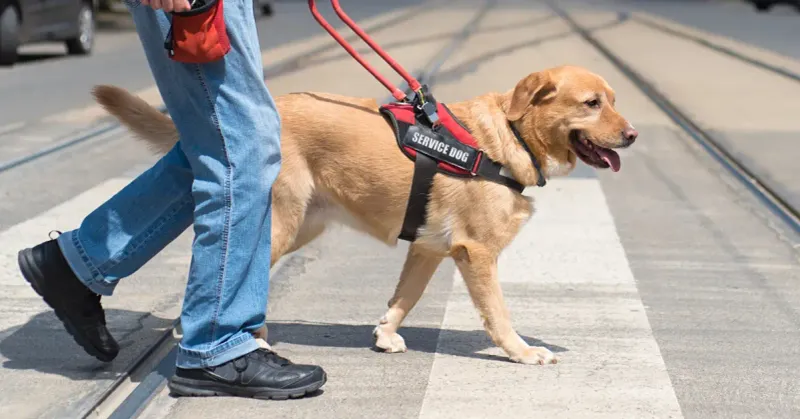
Service dogs epitomize the sense of duty that many canines possess. Trained to perform specific tasks, these dogs demonstrate unwavering dedication and focus on their responsibilities.
Their reliability in assisting those with disabilities or in search and rescue operations showcases an understanding of their role and the impact they have. This sense of duty, rooted in emotional intelligence, highlights their capacity for empathy and commitment, ensuring they provide invaluable support to those they serve.
Communication Skills
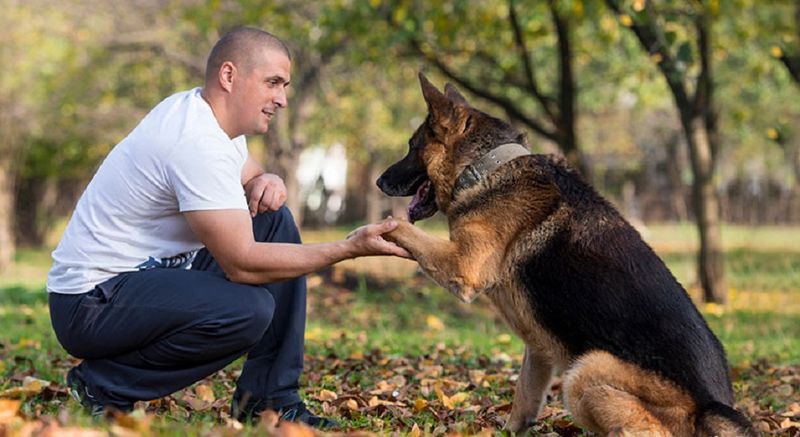
Dogs are masters of non-verbal communication, using body language to convey their needs and emotions. From wagging tails to specific barks, they express a wide range of feelings and intentions.
This ability to communicate without words illustrates their emotional intelligence, allowing for a deeper connection with their human companions. By understanding these cues, owners can respond appropriately, enhancing the mutual understanding that defines the human-dog relationship.
Memory and Recognition

Dogs possess impressive memory skills, often recognizing people and other animals they’ve met before. This memory capability highlights their cognitive and emotional intelligence, allowing them to form lasting connections.
Their joy upon reuniting with an old friend, even after a long time, is a testament to their strong recognition abilities. This memory retention not only strengthens bonds but also plays a crucial role in their ability to learn and adapt over time.
Expressive Eyes

The eyes are the windows to the soul, and in dogs, they are remarkably expressive. Their eyes convey a plethora of emotions, from love and joy to concern and curiosity.
These expressions allow for a silent communication that creates a deeper bond between dogs and their humans. Understanding these visual cues is crucial in interpreting a dog’s feelings, reinforcing the emotional connection that defines their relationship with people.
Protective Instincts

Protective instincts are an innate part of many dog breeds, often leading them to guard their family with unwavering loyalty. This behavior is not just instinctual but also emotionally driven, reflecting their strong bond with their human companions.
Their alertness and readiness to defend loved ones highlight their deep sense of responsibility and emotional connection. This protective nature provides a sense of security, making them cherished members of many households.
Comfort Seeking

Dogs often seek comfort in familiar objects or people, showcasing their emotional need for security and warmth. This behavior reflects their desire for connection and reassurance, especially in unfamiliar or stressful situations.
Cuddling with a favorite blanket or snuggling close to their owner are ways they find solace, highlighting their emotional intelligence in seeking out comfort. This tendency strengthens the bond with their human companions, providing mutual emotional support.
Playfulness Across Ages

Playfulness is a trait that dogs carry throughout their lives, often maintaining a youthful exuberance well into old age. This enduring playfulness is a reflection of their joyful spirit and emotional vitality.
Engaging in playful activities not only keeps them physically active but also emotionally fulfilled, providing a continuous source of joy for themselves and their human companions. Their ability to find happiness in play, regardless of age, showcases an enduring zest for life.
Subtle Sensitivity

Dogs are incredibly sensitive to changes in their environment, particularly in their owner’s tone of voice or mood. This sensitivity allows them to respond appropriately, whether by offering comfort or joining in on excitement.
Their ability to pick up on subtle cues reflects a high level of emotional intelligence, making them attuned companions capable of understanding complex human emotions. This sensitivity enhances their relationships with people, providing emotional support and companionship.

